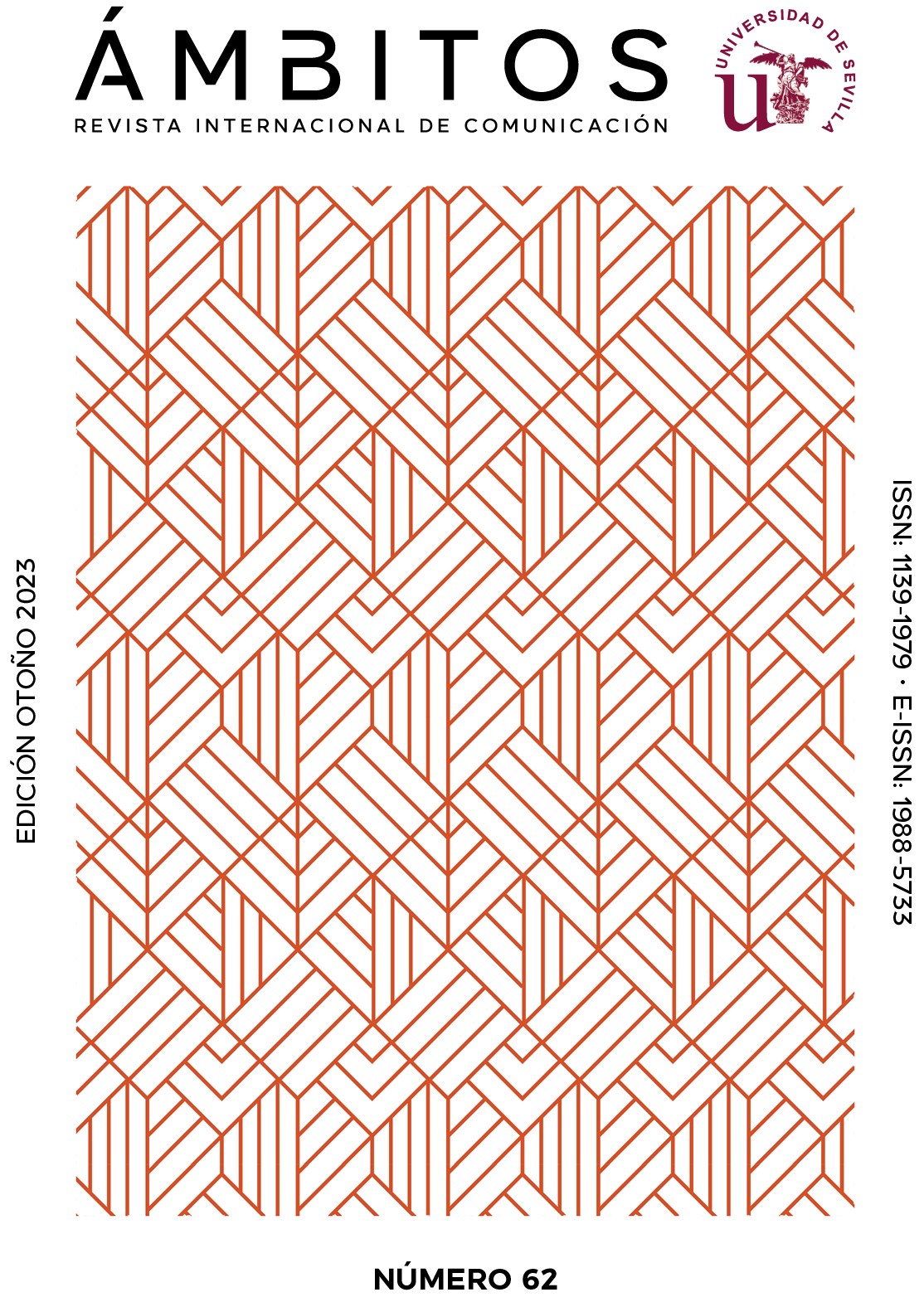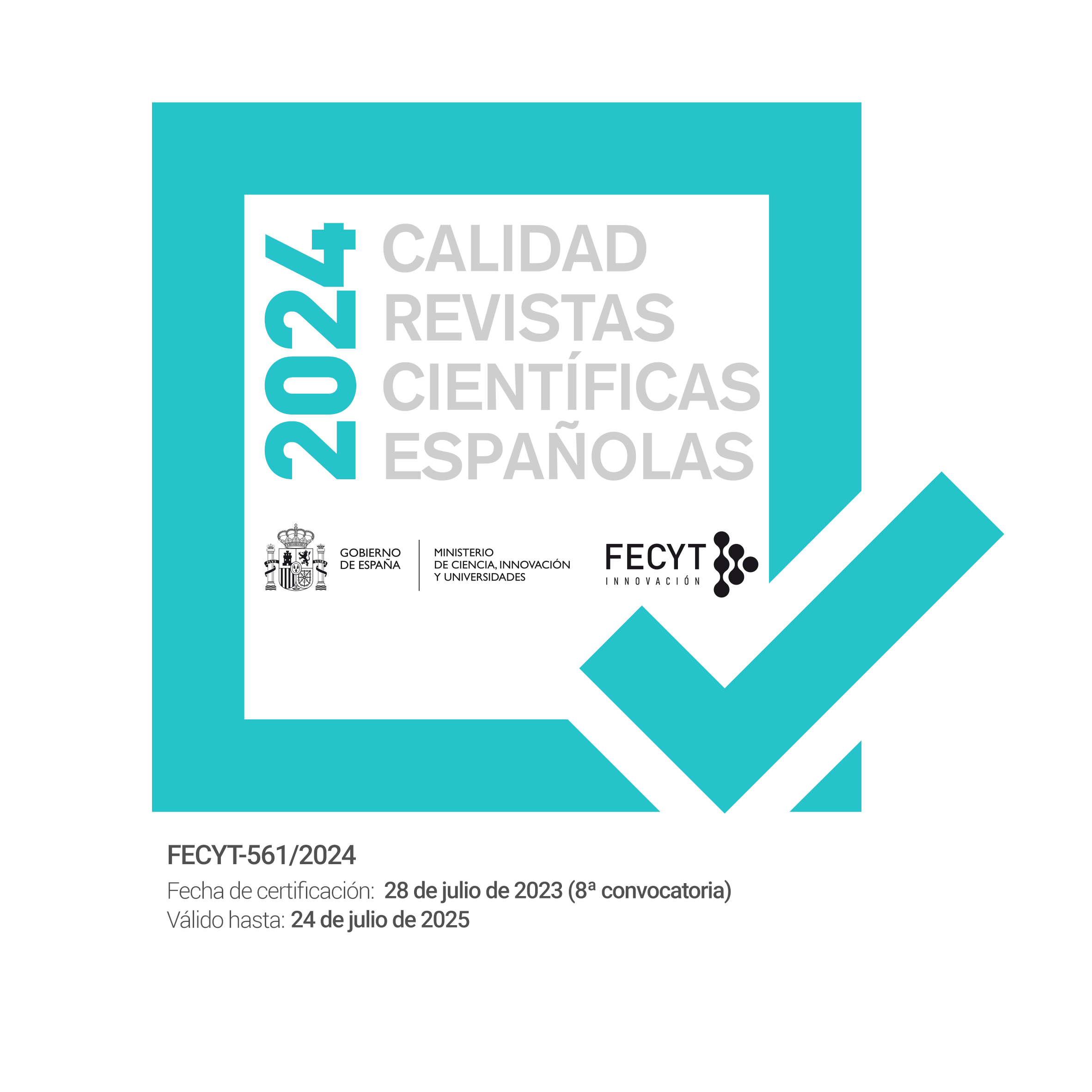Branded Podcast Production in Spain: Analysis of the native offer on digital audio platforms in 2022
DOI:
https://doi.org/10.12795/Ambitos.2023.i62.03Keywords:
podcast, branded podcast, advertising, Spanish podcast, audioAbstract
The podcast has consolidated its position as an effective medium for brands to connect with their audiences thanks to its niche nature, the creativity freedom of the format, individual, immersive, and selective listening, and accessible production costs. As a business model the branded podcast opens wide possibilities for creators and distributors of an industry whose indicators show a sustained increase in production and consumption. The aim of this paper is to study the original branded podcasts published in 2022 on the most important digital audio platforms in Spain: Audible, Amazon Music, iVoox, Cuonda, Podium Podcast, Podimo, Sonora and Spotify. On a total sample of 263 titles, 38 were identified as belonging to this variant through a mixed quantitative and qualitative documentary methodology whose objectives are: a) to study their relevance and prominence in every platform; b) to categorize the themes, genres and sectors of activity that spend on these productions; and c) to recognize their promotional strategies in other digital channels (RRSS, web and video). The results reveal that the branded podcast is a still a minor source of financing compared to advertising and subscriptions: 14 % of the premieres are in this format, which is widely used by the publishing sector and, to a lesser extent, by finance, automotive and household brands.
Downloads
References
Afuera, A. (2021). Aquí, Unión Radio. Crónica de la primera cadena española (1925-1939). Cátedra.
Barbeito-Veloso, M. L., & Perona-Páez, J. J. (2019). Comunicación organizacional en clave sonora: El caso de Blink, los podcasts de BBVA. El Profesional de la Información, 28(5), e280511. https://doi.org/10.3145/epi.2019.sep.11
Cuonda. (2017). Cuonda presenta los podcasts de la nueva temporada 2017–2018. Medium. https://onx.la/64bb1
Dosdoce.com. (2023) More than 400 entities make up the new Spanish Audio Industry Ecosystem. https://onx.la/944a1
Edge Studio. (2017, 27 de abril), Decades a lurker, radio drama comes back as a podcast. https://onx.la/05d09
García-Estévez, N., & Cartes-Barroso, M. J. (2022). The branded podcast as a new brand content strategy. Analysis, trends and classification proposal. El Profesional de la Información, 31(5), e310523. https://doi.org/10.3145/epi.2022.sep.23
Hernández-Sampieri, R., Fernández-Collado, C., & Baptista Lucio, M. P. (2010). Metodología de la Investigación. McGrawHill.
Hoyos Botero, C. (2000). Un modelo para investigación documental: guía teórico-práctica sobre construcción de Estados del Arte con importantes reflexiones sobre la investigación. Señal Editora.
iVoox. (2022). Informe sobre el consumo de podcast en español. Observatorio iVoox 2022. https://onx.la/1e4cb
Kantar. (2023) Media Trends and predictions 2023. Un informe diverso y fascinante del panorama actual de los medios y del marketing. https://onx.la/aaaf6
Lieberman, A., & Schroeder, O. A. (2022). A voice inside my head: The psychological and behavioral consequences of auditory technologies. Organizational Behavior and Human Decision Processes, 170, 104133. https://doi.org/10.1016/j.obhdp.2022.104133
Llanos Martínez, H. (2023, 3 abril). Viajes y ‘podcast’, la combinación ganadora para impulsar la imagen de todo un país. El País. https://onx.la/0034d
Newman, N. (2023). News podcasts who is listening what formats are working. Reuters Institute for the Study of Journalism. https://onx.la/5de8d
Orrantia, A. (2022). Cómo habla tu marca en podcast? El audio en la estrategia de marketing digital de tu empresa. ESIC.
Pedrero-Esteban, L. M., Martínez Otón, L., & Escobedo Pareja, E. (2023). El audio digital en la era omnicanal: contenidos, formatos y métricas. En M. Perlado Lamo de Espinosa, N. Papi Gálvez, & M. Bergaz Portolés (Coords.), Audiencias y medios digitales: más allá del dato (pp. 83–94). Tirant Lo Blanch.
Pedrero-Esteban, L. M., Martínez Otón, L., Castillo Lozano, E., & Nieto Martín-Nieto, R. (2023). Cómo suenan los podcasts en España. Observatorio Nebrija del Español. Fundación Antonio de Nebrija.
Piñeiro-Otero, T., & Pedrero-Esteban, L.-M. (2022). Audio communication in the face of the renaissance of digital audio. El Profesional de la Información, 31(5). https://doi.org/10.3145/epi.2022.sep.07
Price Waterhouse Cooper. (2023). Entertainment and Media Outlook 2022-2026 España. https://onx.la/cc207
Prodigioso Volcán. (2022). Informe Voz 2022. https://onx.la/d62ed
Rogel del Hoyo, C. R., & Molano, M. M. (2020). El branded content como estrategia (no) publicitaria. Pensar la publicidad. Revista internacional de investigaciones publicitarias, 14(1), 65–75. https://doi.org/10.5209/pepu.68369
Sellas-Güell, T., Martínez-Otón, L., & Ortega-Seguí, J. M. (2021). El branded podcast como estrategia corporativa y de marca: sentido de pertenencia, pedagogía social y posicionamiento. En J. Olivares-Santamarina & R. Gago-Gelado (Coords.), El branded content en la comunicación posdigital: estructuras, aplicaciones y casos de éxito (pp. 147–168). Tirant lo Blanch.
Zerfass, A., & Piwinger, M. (2007). Handbuch Unternehmenskommunikation. Springer Gabler.
Downloads
Published
How to Cite
Issue
Section
License
Copyright (c) 2023 Laura Martínez Otón, Eduardo Castillo Lozano , Rebeca Martín Nieto, Luis Miguel Pedrero Esteban, Ana Perez Escoda

This work is licensed under a Creative Commons Attribution-NonCommercial-ShareAlike 4.0 International License.
Ámbitos. Revista Internacional de Comunicación is an open access journal, which means that all content is freely available at no charge to the user or their institution. Users may read, download, copy, distribute, distribute, print, search or link to the full text of articles, or use them for any other lawful purpose, without seeking prior permission from the publisher or author. This definition of open access is in accordance with the Budapest Open Access Initiative (BOAI).

Unless otherwise noted, all content in the electronic edition is distributed under a "Creative Commons Attribution-NonCommercial-ShareAlike 4.0 International License". You can consult the informative version and legal text of the licence here. This should be expressly stated in this way where necessary.
In case of acceptance of the manuscript, the authors cede the rights of the work for its publication to Ámbitos. Revista Internacional de Comunicación under the Attribution-NonCommercial-ShareAlike 4.0 International license contract (CC BY-NC-SA 4.0). The authors retain copyright and third parties are authorised to copy, distribute and make use of the work, provided they comply with the terms and conditions set out in the licence
- Cite the authorship and the original source of publication (journal, publisher and URL of the work).
- Do not use them for commercial purposes.
- If you remix, transform or create from the material, you must release your contributions under the same license as the original.
More information can be found at https://creativecommons.org/licenses/by-nc-sa/4.0/deed.es


















